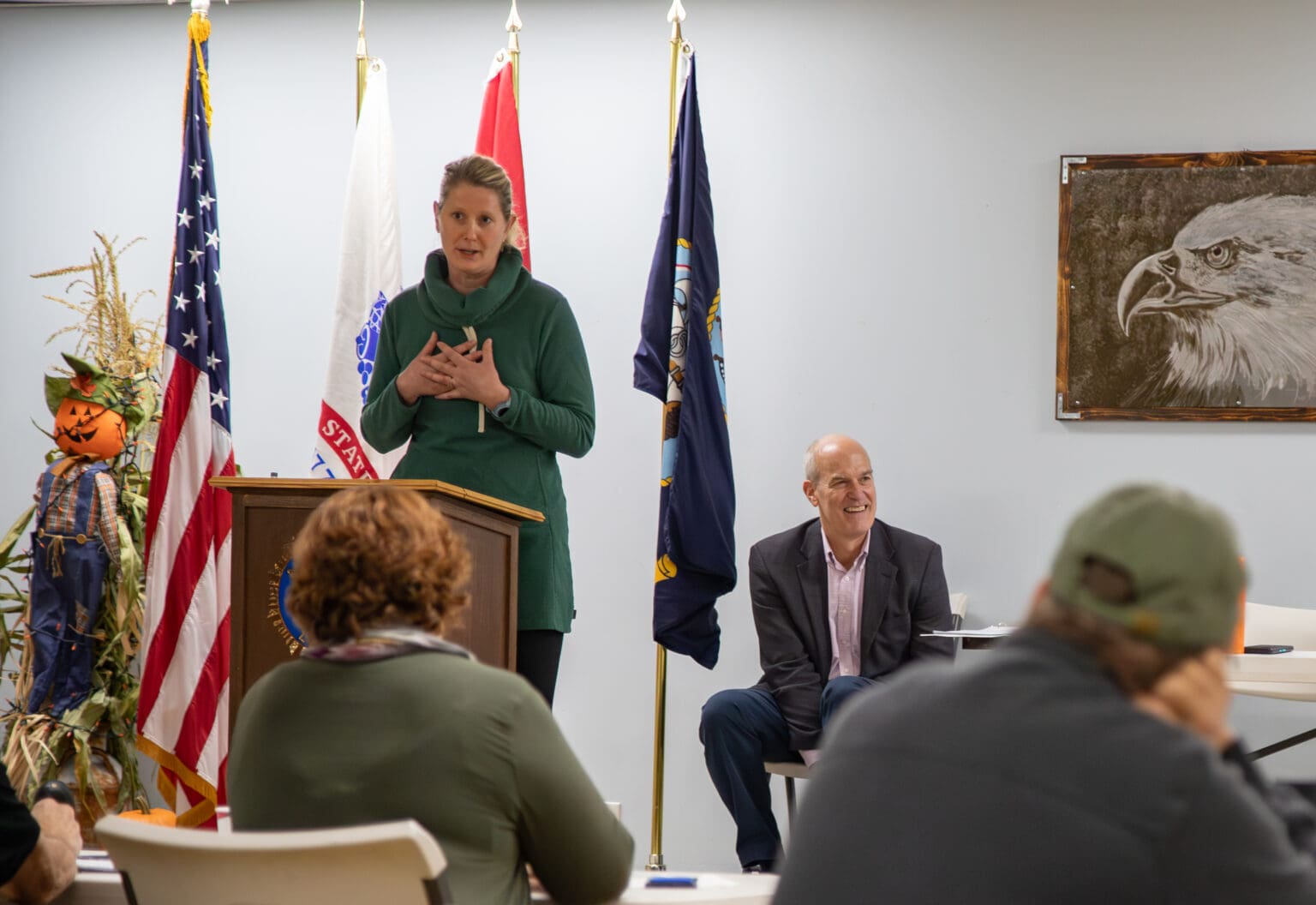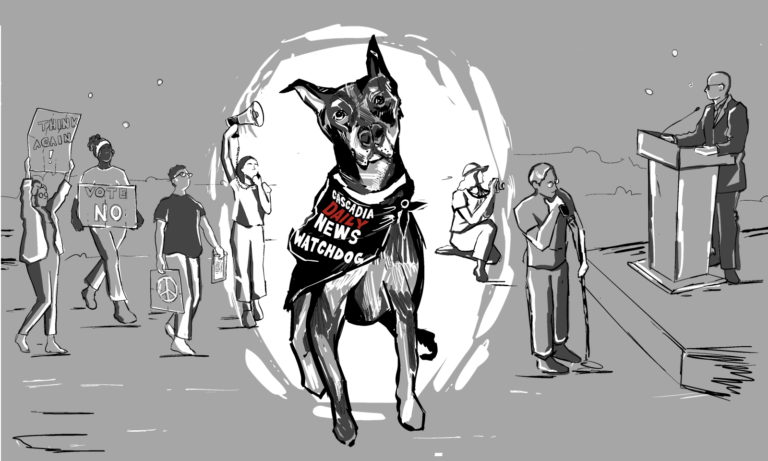Despite expanding aid, veterans in Whatcom County continue to struggle to find and keep affordable housing.
A county survey published in June documented 60 homeless veteran households at the start of 2023, up from 46 in 2022 and 41 in 2020. The annual point-in-time survey documents homeless people, but experts say the numbers are often under-reported.
“We all agree that affordable housing is a premium in Northwest Washington, and certainly here in Whatcom County. Veterans are not immune from that problem as well,” U.S. Rep. Rick Larsen said during a Veterans Forum on Monday, Nov. 6, in Bellingham.
A little over a decade ago, the number of veterans experiencing homelessness dipped drastically with the advent of two new programs: the Veterans Affairs Supportive Housing program and the Supportive Services for Veterans and their Families program. Within the first two years of implementation, the number of unhoused veterans in Whatcom County dropped from 74 in 2011 to 31 in 2013.
However, these resources have not been able to keep pace with a housing market that becomes more expensive by the year.
“It is now $2,000 [a month] to have a two-bedroom apartment in town. So that means when you come and see me for your first month’s rent, that is $4,000 [including your deposit],” Whatcom County veterans specialist Liz Witowski said at the forum. “There seems to be no decrease in housing costs in Whatcom County.”
The Whatcom County Veterans Assistance Program, which Witowski runs, is funded by RCW 73.08.080, a state law that gives county governments permission to enact a levy on property taxes for that purpose. The office provides a variety of services, from helping with move-in costs to providing temporary financial stability to those in danger of losing their housing.
This year, demand for these services has exceeded the program’s budget, said Ann Beck, Whatcom County Community Health and Human Services manager.
“We ran up against our budget authority last month, or the month before. We moved [funds] from another item that wasn’t being spent out at the same rate, and so we’ve been able to continue the financial assistance to veterans as they need it this year. But in 2024, we are looking to increase the amount that we have just within our budget,” Beck said.
Aside from the limited availability of affordable housing, Beck attributed veterans’ recent increase in need to the expiration of a variety of rental assistance programs related to the pandemic and to the challenges of living on a fixed income.
“It’s always challenging if folks are on a fixed income and their housing prices are increasing, because their fixed income is typically not increasing at the same rate. They’re being priced out,” Beck said.
In October, U.S. Sen. Maria Cantwell announced that the Bellingham Housing Authority would be one of nine public housing agencies in Washington state to receive additional funds through the Veterans Affairs Supportive Housing program.
The $37,643 going to Bellingham Housing Authority equates to five housing vouchers, which means that the organization will be able to subsidize roughly five additional veteran households, with variation depending on household size, executive director Brien Thane said.
The addition will bring the number of vouchers currently distributed by the agency up to 60. Since the advent of the program in 2011, the organization has served 92 veterans, Thane said.
The voucher program works in conjunction with Veterans Affairs, which refers veterans to the authority and provides case management, as well as clinical services to help them stay housed.
“It has been a bit incremental over the years, in part based on the VA’s capacity to identify vets and provide the services to them. Case management is a real challenge throughout our community and statewide,” Thane said.
Because of this, Bellingham Housing Authority could only request as many additional vouchers as local case managers at the local Veterans Affairs office could manage.
In the future, more case managers could mean more available vouchers for veterans.
“It’s just a matter of Congress giving HUD enough resources for the vouchers, and the VA enough resources for the services,” Thane said.
Although the program does not currently meet growing needs in Whatcom County, Thane emphasized that it has a strong track record for helping veterans access and maintain housing.
“Combating homelessness is a major challenge. The VA program is really successful. Many communities have been able, through the VA program, to reduce veteran homelessness to effectively zero. That doesn’t mean that there aren’t any homeless vets, but it means that there are very few and we’re able to get them rehoused pretty rapidly,” Thane said.
Hailey Hoffman contributed to the reporting of this story.




